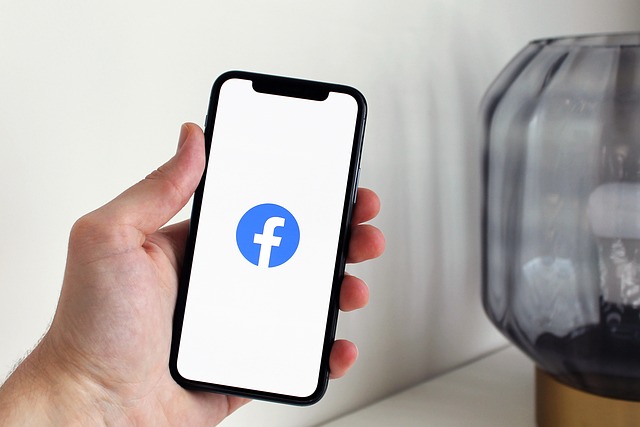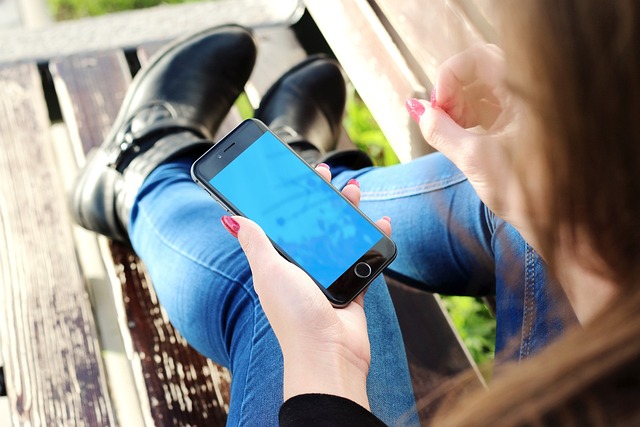Is it safe to give phone number on Facebook marketplace?
Are you wondering if it’s safe to share your phone number on Facebook Marketplace? With its growing popularity for buying and selling items locally, Facebook Marketplace offers convenience but also comes with potential risks.
Sharing personal information, such as your phone number, can lead to privacy concerns and unwanted contact. While some sellers and buyers prefer direct communication, it’s crucial to weigh the pros and cons.
Protecting your personal data should be a priority, so understanding the best practices for sharing contact information on these platforms is essential.
Here’s what you need to know to safeguard your privacy while navigating Facebook Marketplace.
Here what does pending means on Facebook marketplace?
Is it safe to give phone number on Facebook marketplace?
Providing your phone number on Facebook Marketplace can be convenient for communication, but it comes with risks.
Sharing your phone number makes you vulnerable to spam calls, text messages, and potential scams.
To mitigate these risks, you can use the Messenger app for communication instead of sharing your number directly.
If you choose to provide your phone number, consider using a secondary number or a virtual number service to protect your primary contact details.
Always be cautious when dealing with buyers or sellers you don’t know well. Verify their profile and reviews if available, and avoid sharing sensitive personal information beyond what’s necessary for the transaction.
Additionally, be wary of any requests for payment through unconventional methods or offers that seem too good to be true. Prioritizing safety and privacy will help ensure a more secure experience on the platform.
What can a scammer do with your phone number on Facebook Marketplace?
Is it safe to give phone number on Facebook marketplace?

A scammer with your phone number from Facebook Marketplace can use it for various malicious activities.
They may send phishing messages to trick you into revealing personal information or login credentials. Scammers could also use your number for unsolicited marketing or spam calls, potentially leading to further scams.
Another risk is that your number might be sold or shared with other scammers, increasing your exposure to fraud attempts. In some cases, scammers might use your number to impersonate you or engage in identity theft.
To mitigate these risks, avoid sharing your phone number when possible and use Facebook’s messaging system for communication.
Here, can you sell cpap machine on Facebook marketplace?
If you must provide your number, consider using a secondary or virtual number to protect your primary contact details. Always be cautious of unexpected requests or offers that seem suspicious.
Is it OK to share phone number on Marketplace?
Sharing your phone number on Marketplace can be convenient for communication, but it carries risks.
While it may facilitate easier contact with buyers or sellers, it also opens you up to potential spam calls, phishing attempts, and scams.
Scammers can misuse your number to send unsolicited messages, attempt identity theft, or trick you into revealing personal information.
To minimize these risks, consider using the platform’s messaging system for initial contact instead of sharing your phone number. If you must provide your number, use a secondary or virtual number to protect your primary contact details.
Always verify the legitimacy of the person you’re dealing with and be cautious of any suspicious requests or offers. Prioritizing your privacy and security will help ensure a safer experience on Marketplace.
Here, can you sell concert tickets on Facebook marketplace?
9 Reason why is it not safe to give phone numner on Facebook marketplace
Is it safe to give phone number on Facebook marketplace?- Here you’ll see 9 reasons.
How to know if someone on Facebook marketplace scamming you?
Is it safe to give phone number on Facebook marketplace?

Is it safe to give phone number on facebook marketplace without
Giving your phone number on Facebook Marketplace carries inherent risks. While it can facilitate smoother communication, it exposes you to potential issues.
Scammers might use your number for phishing attempts, spam calls, or unsolicited marketing. Additionally, your number could be sold or shared with third parties, leading to further harassment or fraud.
To minimize these risks, consider using Facebook’s Messenger for communication instead of sharing your number. If you must provide it, use a secondary or virtual number to safeguard your primary contact details.
Always verify the legitimacy of the buyer or seller and be cautious of any suspicious behavior or requests. Prioritizing your privacy and security helps ensure a safer experience on the platform.
I gave my phone number on Facebook Marketplace
Is it safe to give phone number on Facebook marketplace?
If you’ve given your phone number on Facebook Marketplace, it’s important to stay vigilant. Monitor your phone for any unusual or unsolicited messages, calls, or requests.
Scammers might use your number for phishing attempts or to gather more personal information. If you start receiving spam or suspicious messages, consider reporting them and blocking the numbers.
To protect your privacy, avoid sharing additional sensitive information and be cautious of any offers or requests that seem too good to be true.
Here, how to turn off shipping on Facebook marketplace when selling?
You might also want to use a secondary or virtual number for future transactions to minimize exposure. Regularly review and update your privacy settings on Facebook to enhance your security.
If you suspect any fraudulent activity or feel uncomfortable, trust your instincts and cease communication with the individual involved.
Marketplace buyer asking for phone number
Facebook Marketplace phone number
On Facebook Marketplace, sharing your phone number can make communication easier but comes with risks.
Scammers might misuse your number for phishing attempts, spam calls, or other malicious activities. To protect yourself, use Facebook’s messaging system for initial interactions instead of sharing your phone number.
If a phone number is necessary, consider using a secondary or virtual number to safeguard your primary contact information.
Be cautious of buyers or sellers requesting your phone number too early or without a clear reason. Verify their profiles for legitimacy by checking their activity, reviews, and connections.
Here, how to search by seller on Facebook marketplace?
Avoid disclosing sensitive personal information and be wary of any offers or requests that seem unusual. Prioritize your privacy and security by limiting the sharing of your phone number and remaining alert to potential red flags in your transaction.
I got scammed on facebook marketplace, what can i do?
Facebook Marketplace buyer wants me to call them
If a Facebook Marketplace buyer asks you to call them, proceed with caution. First, assess the buyer’s legitimacy by checking their profile for a history of activity, reviews, and a complete profile.
Scammers often use phone calls to gain personal information or conduct fraudulent activities.
Instead of calling directly, suggest using Facebook’s Messenger for communication, which keeps interactions within the platform’s secure environment.
Here, how to list services on Facebook marketplace?
If you decide to make a call, consider using a secondary or virtual phone number to protect your primary contact details. Be cautious about sharing personal information or making transactions over the phone.
Ensure the buyer provides clear and legitimate reasons for needing a call, and avoid discussing sensitive details.
Always prioritize your privacy and security, and be wary of any requests that seem unusual or put undue pressure on you.
How to spot fake buyers on Facebook Marketplace
Related faq;s
What do I do if the buyer is asking for a phone number on Facebook Marketplace?
If a buyer on Facebook Marketplace asks for your phone number, proceed with caution.
Start by using Facebook’s messaging system for communication to protect your personal details. Verify the buyer’s profile for legitimacy and look for signs of a genuine account.
If you must provide a phone number, consider using a secondary or virtual number to keep your primary contact information private.
Avoid sharing sensitive personal details and be wary of any unusual requests or pressure tactics. Prioritize your privacy and security by ensuring that all interactions are safe and legitimate.
Why is the Facebook marketplace seller asking for a phone number?
Is it safe to respond to a marketplace response that asks you to text to a phone number?
Responding to a marketplace request asking you to text a phone number carries risks. Scammers may use phone numbers to conduct phishing attempts, gather personal information, or send spam.
To protect yourself, first verify the legitimacy of the seller by checking their profile and reviews. If possible, continue communication through the platform’s messaging system, which provides a layer of security.
If you must text, consider using a secondary or virtual phone number to safeguard your primary contact details. Be cautious of any suspicious requests or offers and avoid sharing sensitive information.
Prioritize your privacy and security.
Should I give my phone number on the Facebook marketplace?
People on FB Marketplace stop responding when my dad sends them his phone number?
If people on Facebook Marketplace stop responding when your dad shares his phone number, it could be a sign of several issues. Scammers might use the request for phone numbers as a tactic to avoid further contact or to gather personal information.
Alternatively, the buyers could be wary of sharing phone numbers too soon or may have become suspicious of unsolicited contact.
To improve communication, suggest continuing interactions through Facebook’s messaging system, which keeps exchanges secure and allows for easier verification of the buyer or seller’s legitimacy. Always be cautious when sharing personal information and verify the authenticity of the contact.
Why buyers ask for your phone number?
A potential buyer asked for my phone number?
If a potential buyer asks for your phone number, consider the following steps: Firstly, use the platform’s messaging system to communicate, which offers a layer of security and privacy.
Verify the buyer’s profile for legitimacy by checking their activity and reviews. If you decide to share your number, use a secondary or virtual number to protect your primary contact details.
Be cautious of any unusual requests or pressure tactics. Prioritize your safety by ensuring all interactions are legitimate and secure before providing personal information.
Don’t give out your number right away?
Avoid giving out your phone number right away on Facebook Marketplace. Start by using the platform’s messaging system to communicate, which helps protect your privacy and allows you to verify the buyer’s legitimacy.
If the buyer requests your number too early or without a clear reason, it could be a red flag for potential scams. Assess their profile for authenticity and ensure the request is reasonable.
If you must share your number, consider using a secondary or virtual phone number to safeguard your primary contact details. Always prioritize your security and be cautious of any suspicious behavior.
Is it a scam? FB marketplace “send me your cell phone number”
Conclusion
Is it safe to give phone number on Facebook marketplace?- Did you see?
Giving your phone number on Facebook Marketplace can pose risks, including exposure to scams, phishing attempts, and unsolicited marketing.
To enhance your safety, use the platform’s messaging system for initial communication and only share your phone number if absolutely necessary.
Verify the legitimacy of buyers or sellers by checking their profiles and reviews. If you must provide a number, use a secondary or virtual number to protect your primary contact details. Prioritize your privacy and security by staying vigilant and cautious, and avoid sharing sensitive personal information.
Ensuring safe communication practices helps mitigate potential risks associated with phone number sharing.

